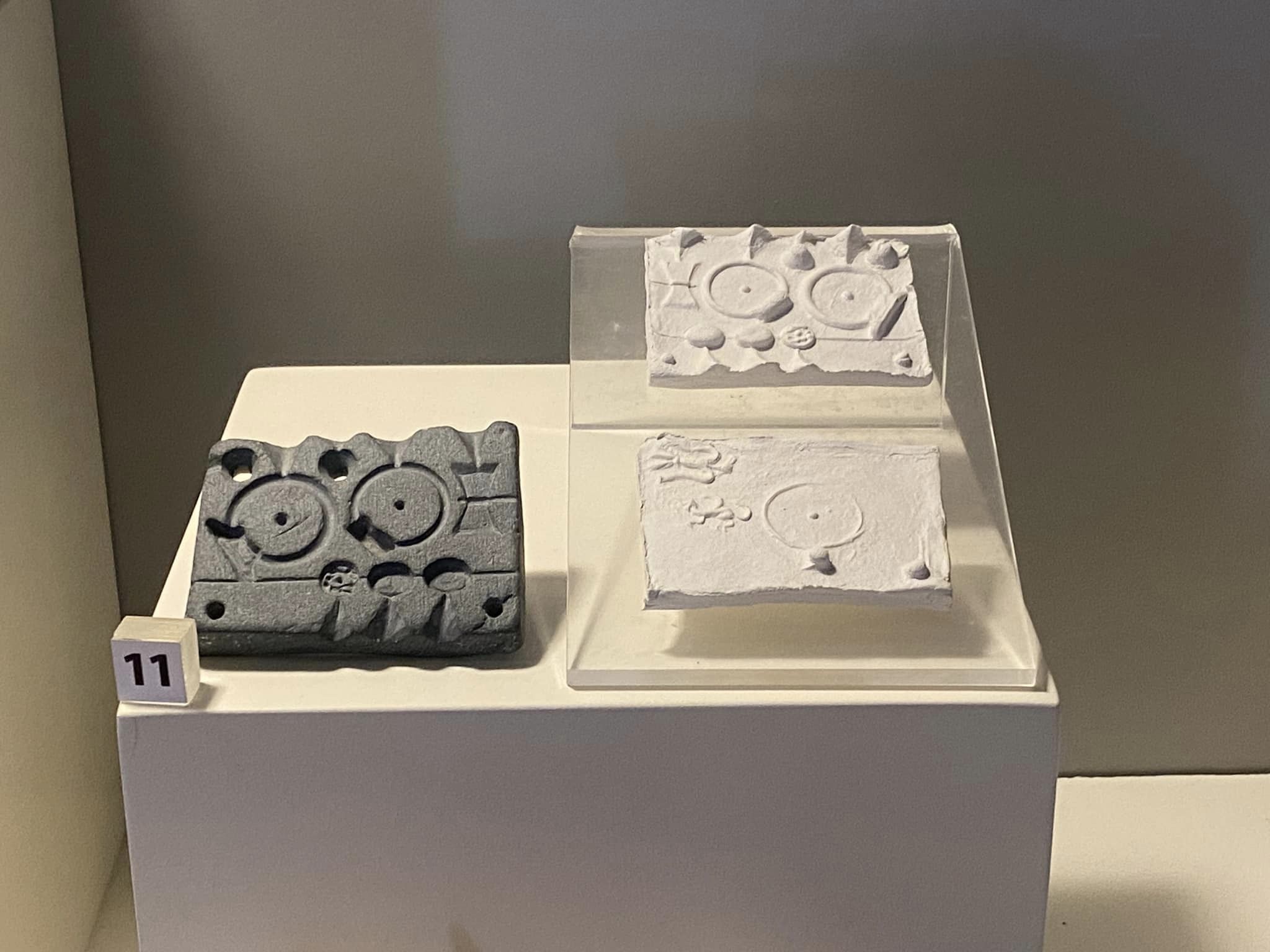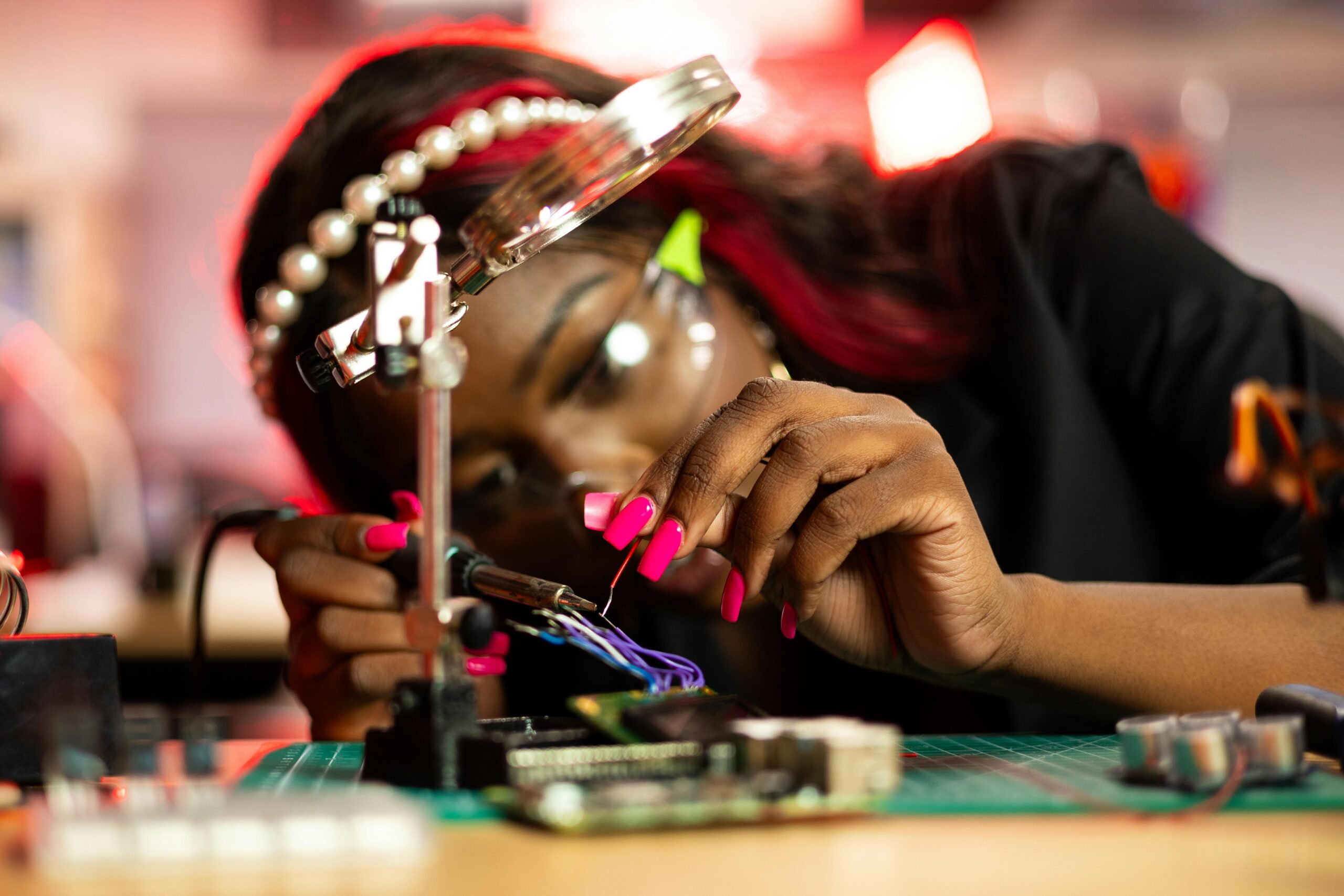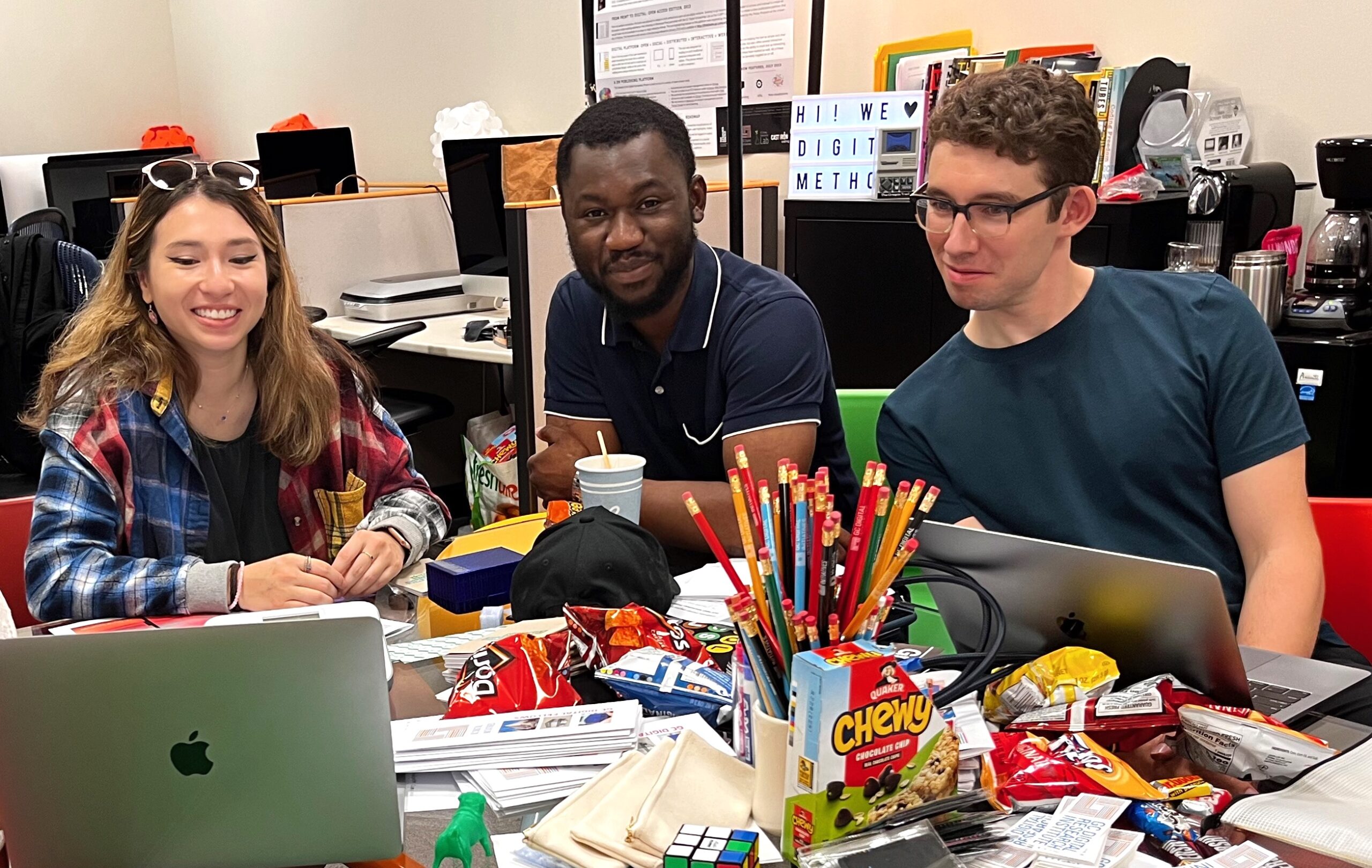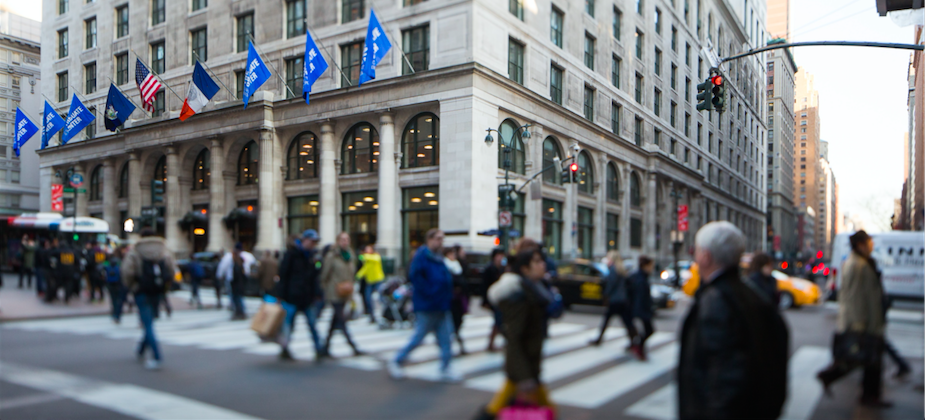
The digital humanities. Digital scholarship. Digital research methods. Do these phrases cause you to think of a vibrant community of scholars, critical methods, and projects–perhaps one that is already your home?
If not, we’re here to help!
Participating in graduate research in the modern university, with departmental specializations and overwhelming research obligations, often means that we focus narrowly. Those of us who are not yet familiar with the methods and research that constitute digital scholarship might not know the ways that this field can inform our current projects for the better, and even if we are aware, we just might not know where to begin.
This post will share some of the digital scholarship resources available for you at The Graduate Center and beyond, and encourage you to explore digital methodologies in your research. No need to switch into high gear on a digital humanities track, digitize your dissertation, or even learn to code. Digital methodologies for your specific needs could mean learning how to efficiently query library databases to find articles, using Python to process your data, or trying a new platform to visualize a research question you’ve been stuck on. Here, we’ll sketch out an overview of the people who are eager to help and the places that can make it happen.
People
As Digital Fellows, we are eager to be your resources in navigating digital scholarship. We will have a range of skill-building workshops at The Graduate Center this fall, featuring WordPress tutorials, introductions to text encoding, data visualization, and beyond–all of which will be announced soon here. In the meantime, check out our digital archive of past workshop handouts and resources, or read our year-end report to learn more about the types of expertise we offer and projects that are happening at The Graduate Center.
We also hold regular office hours on Wednesdays from 2-3pm at the GC Digital Scholarship Lab, Room 7414 of The Graduate Center, so we can consult on best methods for your specific project needs. Please email us at gc.digital.fellows@gmail.com to set up an appointment, or walk right on in.
Places
The GC Digital Scholarship Lab isn’t just for Digital Fellows’ office h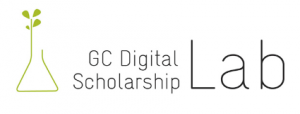 ours: it’s a hub of activity for digital
ours: it’s a hub of activity for digital
projects. You’ll find all the Graduate Center Digital Fellows here–in Social Media and Videography, too–as well as projects that include the NEH-funded DH Box, Social Paper, Image Plot, Commons in a Box, and more, all of which focus on collaboratively produced open-source software platforms that emphasize community.
Another site of digital research is the New Media Lab, in Room 7388.01, which encourages interdisciplinary, innovative digital work alongside traditional modes of academic research, and provides space for graduate students to perform digital work. Visit both the GC Digital Scholarship Lab and the New Media Lab websites to learn more about the types of digital projects your colleagues are accomplishing and to see resources and funding opportunities for your own ideas.
Community
One of the simplest ways to learn more and get involved with digital humanities is to build out your own online presence and connect with others. Sneak peek: we will be offering a workshop on developing your online academic identity this fall, but in the meantime, a great place to get started is creating an account on the CUNY Academic Commons. 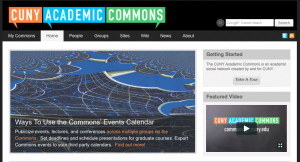 On this valuable platform, developed just for CUNY, you’ll find groups, calendars, people, and posts in a dynamic social network. You’ll learn about research groups that you never knew existed–almost seven hundred are registered on the Commons–and find new places to share your research and learn about what others are doing.
On this valuable platform, developed just for CUNY, you’ll find groups, calendars, people, and posts in a dynamic social network. You’ll learn about research groups that you never knew existed–almost seven hundred are registered on the Commons–and find new places to share your research and learn about what others are doing.
You can also make a personal website hosted on the Commons, make a blog, and share files in a system that’s flexible, open-source, and designed for digital academic communication. For up-to-date digital news, join the Digital Humanities Initiatives group and check out their forum for a catch-all of what’s happening in digital research around The Graduate Center now.
The Graduate Center Library provides one-on-one research assistance, and also hosts workshops throughout the semester on topics from citation management software to archival research. For a list of workshops and dates, check out their events website and be sure to register/RSVP in advance. The library also hosts Academic Works, CUNY’s open access institutional repository, where CUNY community members can post their research for anyone to see. To read more about the types of materials available on Academic Works, the benefits of open access, and how to get started, try this library guide.
Other community resources include The Futures Initiative, in collaboration with HASTAC and housed in at CUNY, which offers events, workshops, and talks on ways to incorporate data-driven approaches to humanities research with inspired teaching practice. The certificate program in Interactive Technology and Pedagogy also hosts regular workshops during the fall semester and is an excellent resource for learning new techniques, particularly those that can benefit your teaching practice.
For the New York City metropolitan area, you’ll find forum space, a calendar of events, and area groups on NYCDH.org–an online locus of digital humanities in the city, as well as an organization that offers prizes for scholarship, a detailed calendar for workshops and working groups, and a general space to network with other digital scholars.
It’s an exciting time to explore digital methodologies at The Graduate Center, given the range of resources we have available. We’re looking forward to working with you in workshops, our labs, digital spaces, and beyond.

